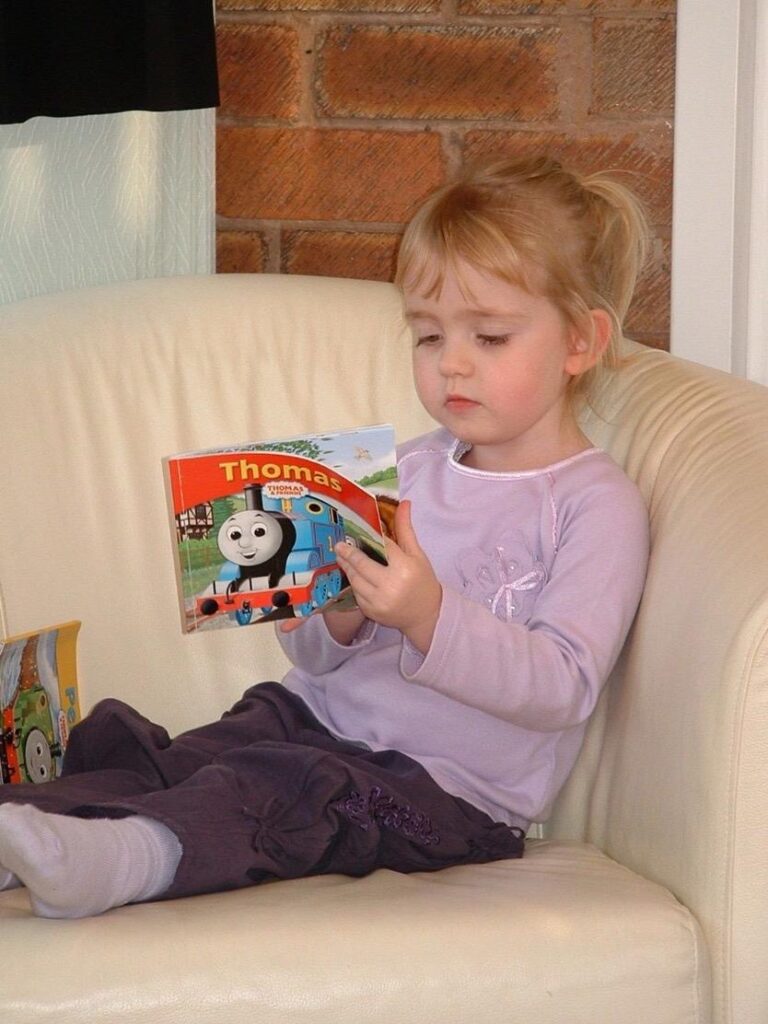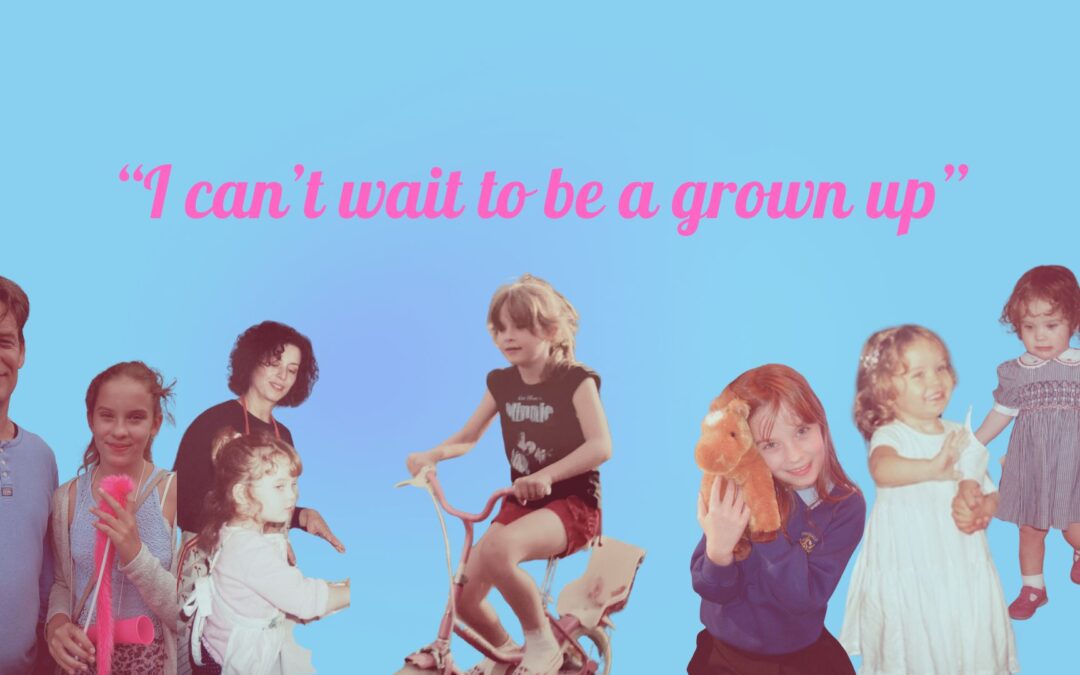Whilst psychologists have spent decades myth-busting the fallacy that an only child is ‘selfish’, ‘bossy’ and ‘possessive’, is it normal to question whether we would think and feel things differently if we weren’t the only one?
When I was growing up, telling people I was an only child led to me being greeted with puzzled expressions or those classic remarks that made me internally shake my head: ‘aren’t you lucky, I bet you get spoilt rotten at Christmas’ or ‘what is it like to not have siblings?’- I never knew how to answer that one, since I’ve never had any.

The Office for National Statistics’ report from last year shows that one-child families accounted for 44% of families in the UK, so we’re not as much of an endangered species as we get credit for.
Now in my twenties, the dreaded comments have been replaced with ‘God, I didn’t expect that! You’re the furthest thing from an only child’, and while I am able to revel in the fact that my loved ones must not think I’m self-centred and bratty, I began to think that if I’m not those things then what am I?
Within the comfort zone of my own mind, I concluded that there are in fact a whole host of personality traits that are a by-product of my lack of siblings.
I promise they’re not all bad- in fact, the perpetual boredom I faced as a child has forced me to learn how to entertain myself, making me better adjusted to tackling the world on my own.

When I moved out of my family home at 18, I was able to recognise that spending time alone and being lonely were two separate entities and they didn’t have to coexist. I’ve had all the time in the world to discover my little passions and what makes my brain tick.
“Parents, no matter how many children they have, tend to have this strange notion that being alone is a problem.”, says Dr Susan Newman, Social Psychologist and bestselling author of a range of parenting books, including ‘The case for the only child’.
She feels strongly that there is a close connection between ‘onlys’ and qualities such as creativity and spontaneity.
“Being alone is a huge advantage in learning how to fill your time effectively. I don’t know if spending time alone is necessarily easier for only children, but they certainly become more independent because of it. When you have siblings, they act as a buffer.
They are often protecting, or helping their siblings in social situations, whereas only children have to navigate this all by themselves. Because of this, they don’t mind going off and travelling alone, or meeting new people.”
I don’t profess to have mastered the art of independence, but I am in a much better position to handle it than some, who will shiver at the mere thought of having to spend too long alone with their own company.
The activities that accompany our twenties- such as fleeing the nest and starting a new job provide us with ample opportunities to secure friendships and find new ways to fill our Friday evenings.
This somewhat heals our inner only child, who didn’t want to leave our friends in the school playground and roped our parents into watching us frolic around the kitchen to a One Direction song when our besties came over for dinner, making them vow to let us spend longer together if they were impressed with our performance.
“I’d say I value friendships and relationships more now than when I was younger, as I don’t have a big family and I turn to my friends for support more often than I would my parents.”, says Emily Marriott, a 21-year-old only child.
She confessed that she found growing up without siblings hard, as she felt happiest when she was around other people and this made her very attached to her parents; now that she has grown, she places this dependency on
her close friends.
“I am reliant on them for happiness sometimes, because if they were taken away from me, I’d feel like I have no one.”
No two narratives are the same: while some of us can be content by ourselves, other ‘onlys’ crave someone who feels like a constant in their life. This may be to fill the void of a sibling, who acts as a built-in best friend who will endure our rants about the same situation, and have no option but to be on our side.
Susan found that it is common for single children to place their friends on a pedestal and treat them as chosen family; this is an innate reaction, which began when we were too young to realise it.
“Sometimes, they act like their friends are sisters and brothers, so they become like surrogate siblings. Only children value their friendships significantly, and they’re going to tread lightly. They are much more likely to share and take turns and to step back and say, ‘you can go first’.
You know how young children always push and shove to be first in line, the only children don’t do that. They know they’re going to get whatever is coming to them, so they’re not desperate to be first and I don’t think it’s a conscious effort, it just automatically happens.”
This means that now, we can laugh in the face of everyone who has ever assumed that we can’t share: we recognised that we needed friends in the school playground, and we will need them to guide us through the ‘panic years’ that we’re currently tackling.
Issues arise when we cross over into people pleasing territory. As a child, I was willing to do almost anything to keep my friends on side- shamefully, if they said ‘jump’, I said ‘how high?’
I gave myself the task of trying to be the best friend they’d ever had. As I matured, this became difficult for me to navigate, as I struggled to distinguish when I was being a good friend from when I was being walked all over.
Georgina Sturmer, a family and relationships counsellor, feels that our personality traits, core beliefs and behaviours are formed by aspects of our upbringing and are strongly influenced by our family dynamics.
“An only child is likely to have experienced a different upbringing from a child with siblings.” she says, “growing up, we develop behaviours in response to what we observe from our early caregivers.
Many grow up feeling like they need to ‘people please’ in order to elicit their attention and affection. It’s likely a response to the sense that we need to ‘do well’ or ‘be good’ for the people around us. It depends on what behaviour was prized when we were
growing up.”
It’s common for us to pile pressure on ourselves; in some cases, this may stem from our parents who are desperate to see us succeeding, but we are also our own worst enemy.
We’ve never been able to watch a sibling try, fail and try again so can you blame us for feeling defeated when we can’t be perfect for those around us?
The hot take is that ‘onlys’ want to keep their friends close, which leads us to wonder if a lack of sibling rivalry in our upbringing- the constant bickering over who gets the front seat in the car or the last sweet in the jar- has determined the ways in which we handle conflict.
We often try to dodge it and when we do find ourselves entangled in it, we view it as a personal attack.
When Alex Hoffman moved to the UK from Australia at 13, she left behind her cousins, who combatted her loneliness as a child. Now 22, she recognises that it was this turning point in her upbringing that made her not enjoy being a single child as much as she once had.
“Being an only child has its ups and downs, and it has had an impact but not defined my entire life. The main negative impact it has had on me would be my reactions to conflict.” she says, “I tend to be sensitive and stubborn and I often struggle to resist holding grudges.
I believe that we take longer to develop conflict resolution skills compared to those with siblings, and this is something I’ve had to adapt to as I’ve matured.”
Relationships with siblings can be complex- for us, it can be easy to romanticise them.
With relationships and friendships coming and going throughout the seasons of our lives, we are bound to feel pressured by the fact that we will have to navigate life whilst watching our parents age and not having that one person that just…gets it.
But it is important for us to keep in mind that we are going to have ourselves for the rest of our lives, and can this really be such a bad thing.
Expert insight: Susan Newman
Susan Newman is a social psychologist, parenting expert and author of 15 books in the relationship and parenting fields, including ‘A Case For The Only Child’. Her research and books examine such areas as building strong family bonds, raising only children, grandparenting and interactions between adult children and their parents and in-laws, as well as the difficulties of raising a family and working, among others.
Expert insight: Georgina Sturmer
Georgina is a councillor who helps women to understand what is holding them back from being happier and more confident and resilient in their life and relationships.




